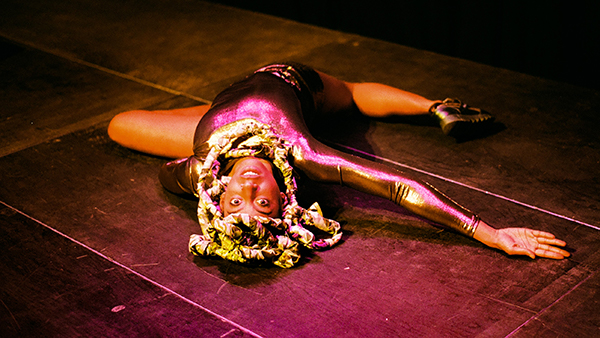Streetwise Opera
There could be no mightier and more powerful riposte to the MP who at the turn of the millennium described homeless people as “the people you step over coming out of the opera house” [it was George Young] than Streetwise Opera. A phenomenal organisation, established in 2002 by Matt Peacock, it has empowered homeless people to literally raise their voices and become part of the high-arts world, working with homeless people across the UK. From regular weekly workshops in five cities to major productions staged everywhere from community centres to opera houses across the country, their ambition, scope, creativity and power to make positive change is remarkable. And in 2020 Streetwise Opera is set to make the world sit up and listen, as they present a new commission created with internationally renowned baritone Roderick Williams, Grammy-winning pianist Christopher Glynn, Brodsky Quartet, Genesis Sixteen and Rydedale Festival Community Chorus. Directed by Royal Danish Opera artistic director John Fulljames, their immersive retelling of Schubert’s Winter Journey – After Winter – will see the cast of homeless singers joined by the audience sharing a communal feast, in conjunction with Middlesbrough Food Partnership.
Art that’s truly communal, collaborative, inclusive and fulfilling!
The Cultural Spring
From workshops for young inventors to calligraphy and creative writing,
The Cultural Spring is an organisation that has helped people in Sunderland to experience, be part of and be inspired by arts and culture in every form. Having drawn audiences of over 11,000 to events and productions, and given 4,500 people the chance to get hands-on with arts in lively artistic workshops over the last 12 months, for 2020 there is a new, ambitious production on the cards which aims to articulate the hopes and dreams of the people of Sunderland. Asking communities to share their dreams for the future, The Cultural Spring will then create a professionally produced theatre piece to be performed by a cast of local folk in September. It’s part of Sunderland Culture’s Great Place Unify programme, which aims to unite the diverse communities of the North East.
Adam Tulloch
As chief executive and artistic director of Total Insight Theatre, Tulloch has given young people who might not naturally find a way into theatre the opportunity to be creative, take part, to be seen and heard – and find a passion for creative arts. The charity has opened doors to 4,000 kids across England, many from marginalised communities, in schools, referral units, libraries, town halls and community centres. Crucially, it ensures they have a meaningful voice and opportunity to construct, create and curate stories that reflect their lived experiences with energy and imagination. Getting to the heart of complex lives is key: their Nottinghamshire-focused production, When I Was 14, addresses issues including youth knife-crime in a thought-provoking, relevant way, and has been nominated for Outstanding Drama Initiative in the Music & Drama Education Awards in March.
Emma Baines, Find Your Voice
Sing hallelujah! The health and wellbeing benefits of participating in singing are well established, and programme manager, director and founder of Find Your Voice Emma Baines explains why her mission – to give marginalised people across the UK an opportunity to raise their voice – is expanding in a big way this year.
The Big Issue: How did Find Your Voice begin?
Emma Baines: It launched in 2011 after I lost my job as a theatre manager. I’m a neurodiverse school-leaver and I very quickly found myself socially isolated and living with poor mental health. I took a look at what skills I had and what I enjoyed doing, and fortunately I had the privilege of being able to sing and teach singing. So I made some flyers, headed into Clerkenwell [in central London] and invited the lunch-breaking locals to join me the next Monday – nine people did. That was the start of us being a social impact organisation. Our overall vision is simple: we want everyone in the UK to experience the health and wellbeing benefits of singing a song they love out loud, even if it’s just the once and no one’s listening.











